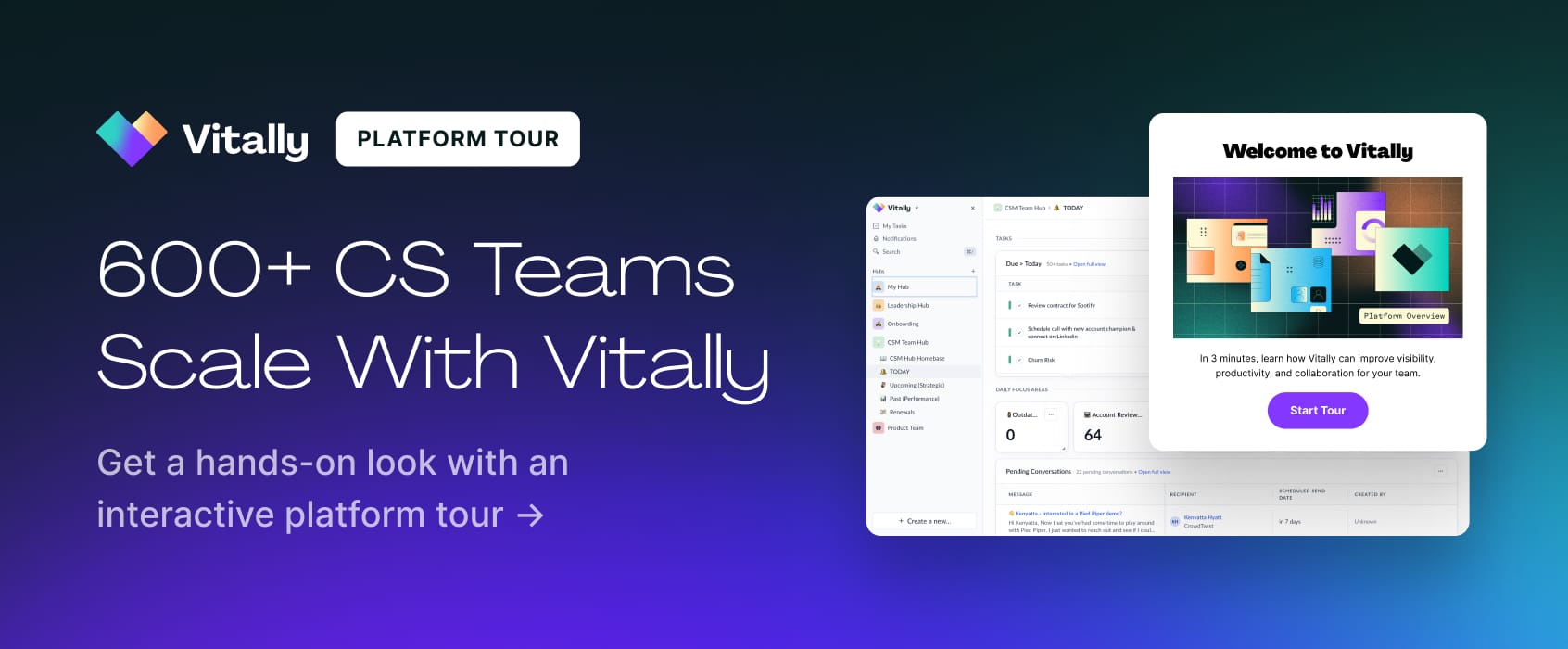
Here’s what happened once I started matching up members of my CS team to clients based on personality. (And what that has to do with The Real Housewives.)
Connecting With Customers
I have a few clients where the first thing we do when we get on a call is talk about The Real Housewives. We have this fun banter for ten minutes or so, and then we get into what needs to be done for the business.
There’s a level of trust that we are building with each other. She knows that I will get it done, and I know that whatever I need from her will happen. And if something goes wrong — if the product breaks or if one of us needs to postpone — there is room for taking it all in stride. The customer is not going to be mad. They will just be like, Oh, but I know you got it. I know you.
I tend to work in Real Housewives on a kickoff call, when I am trying to build that relationship. I’ll say something like, “Hey, my name is Stino; I'm from Belgium. As you can hear, I'm not a native English speaker, but I learned the language because I watch a lot of Bravo and Real Housewives.”
If you see that person smile and laugh, you know you’re in.
One of my team members is a big fan of football. So when he has a new customer, he will look up their city and do a little research on the local team. He’ll say something like, “Hey, my name is Thomas. I'm a huge fan of football. I know you are super close to this or that team.” It's a subtle way to forge a relationship.
If we already know that a customer is super pragmatic, like, they just want to get straight into business, then I’m not a good match for that person. Even if it's our biggest account, I’m going to give it to my team member who is the exact same way. He doesn't do small talk. He just wants to get into it.
Playing Matchmaker With Clients
Our sales team is very good at assessing the customer, and in our onboarding flow we watch recordings of sales demos. I match new clients up with a team member based on a gut feeling. There isn't anything scientific about that process. And I'm not going to lie; that gut feeling sometimes is wrong! I would say in 90% of the cases I am correct. It's like dating. When your first date is going well, but after the third date you're like, “hmm, that was the same person?”
Sometimes it's geographical. Most of our clients, about 90%, are from the United States. Every state is a country all its own. You can guess how people are going to be, based on where they live. I vibe very well with people from the South. They're super open and a little bit more casual. The eastern states are more go, go, go. So just knowing where the client is from can help.
Encouraging Team Members to Be Themselves
If you're a boss that's not micromanaging and pretty accepting of your team, then their personalities can shine through. And that helps you match them up with the right client.
You need to encourage Customer Success team members, and help them get in touch with their personality. The fewer rules, the better. I tell them what needs to get done and set clear objectives, and they figure out how to get there.
I watch their first initial calls and I'm like, “Oh, you're holding back. But you're doing good.” I keep supporting them and cheerleading them, but I never tell them how to get somewhere. That is the best tip that I can give. If you want your team to be 100% themselves, give them the room. Give them the room to grow; give them the room to fall; give them the room to fail; give them the room to win.
That's the best way to learn and scale professionally. If everything is laid out for you, you're becoming someone else. And those are the people that won’t stay with the company for the long-term because they lose themselves along the way.
My team members love their jobs because they don't need to be someone else. They don't need to try to be someone that I tell them to be.

Examples of Client Communications With Personality
1. The “Don’t Ghost Me” Email
In the past, when I hadn’t heard from a client for awhile, I started sending out this cheeky message, comparing my experience with being ghosted by a date. It really worked! I got a lot of positive feedback, clients writing back with apologies, scheduling catch-up calls. I credit the email for preventing a few clients from churning.
When I shared this email on LinkedIn, it got a lot of traction. That was one of the first posts I shared that showed me that people respond when I show up as my true self. I’m not sure how I feel about the term “thought leader,” but I know that sharing real-life problems and solutions with my customer success community has only led to good things.

2. The “It’s Been Awhile” Snail Mail

We have been trying something new since the beginning of this year. So, emails in the time of AI — no one can be bothered with them anymore. Let's be honest. I don't even open up every email anymore, and so many end up in spam. Same thing with phone calls. No one picks up, and I totally get that. People don’t answer a call from a number that they don't know.
I was thinking, how did we do it before? What about personal letters? So that’s what we've done. Here is the exclusive sneak peek. Whenever a customer is churning, we send them an actual, physical letter. A letter that you get on your desk sparks interest. It intrigues. And it's us saying in a very personal way, Hey, you're slipping. We're hitting a kink in the road. Scan this QR code and schedule in some time with me. You can see, my picture is there, and the language is casual and friendly.
We wrote this letter, and I think you can tell. We didn't use any AI. We piloted this in January; we mailed it out to 50 customers at their offices. The conversion rate is 50%. People really love it. There’s a little bit of that excitement there, too, like, oooh, I got a letter!
So that's the angle we're taking this year. How is someone going to trust you if you're an AI bot, or if you sound like one? Our customers trust us because we have a good relationship with them. AI is a good thing, but I'm already getting sick and tired of it. Because nowadays we have a tool for everything, and it makes that human touch all the more important.
Final Thoughts
I think the main issue that Customer Success teams struggle with is that we always want to try everything new. And in the short term, that can get us a lot of revenue as a business. Look at all those AI startups that literally come out of the ground like mushrooms. The majority won’t be here in five years because we are still selling to people, not to AI. We're still working with real life people. We can’t forget to maintain that personal connection.
There’s such a high turnover between companies right now. But are the new hires happier?
I have such a great team, I don't want to lose them. But I don't think I will because I have the feeling that they love what they're doing because they're 100% themselves. It's as simple as that.









